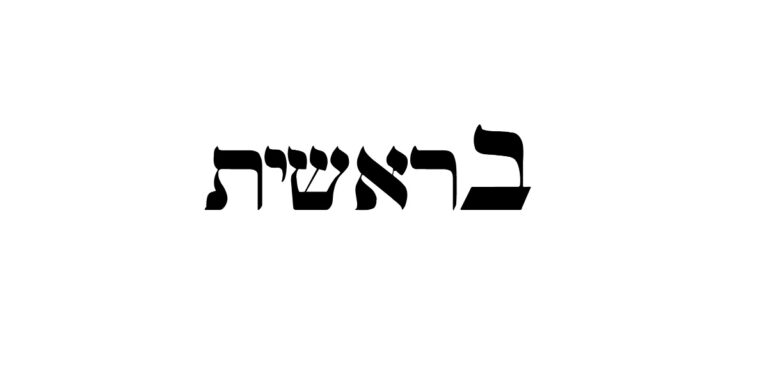In Berashith, written under the name Abhavananda, Aleister Crowley offers one of his most intellectually ambitious essays-a bold attempt to explain the origin of the universe using the language of mathematics, metaphysics, and mystical philosophy. Subtitled An Essay in Ontology with Some Remarks on Ceremonial Magic, the work explores how nothingness (“0”) gave rise to existence, and how human consciousness might transcend it again through spiritual and magical practice.
1. Reconciling the Great Religions through Ontology
Crowley begins by claiming that his theory can harmonize the three major religions-Buddhism, Hinduism, and Christianity-within a single ontological framework. Each, he argues, attempts to define the relationship between the infinite (God or Brahman) and the finite (man and the world).
- Christianity posits a personal, infinite God and finite beings like man and Satan.
- Hinduism teaches Brahman (the infinite reality) and Maya (illusion).
- Buddhism, in contrast, refrains from metaphysical assertions, focusing instead on the cessation of suffering.
Crowley critiques all three: Christianity for its logical contradictions, Hinduism for its failure to explain illusion coherently, and Buddhism for its evasive silence.
2. The Mathematical Origin: From Nothing to Something
The heart of Berashith lies in Crowley’s claim that existence emerged from absolute zero. He distinguishes between the mathematical zero (which already implies dimensions or categories) and an absolute zero, which is entirely beyond space, time, or causality.
He formulates the universe’s birth as a mathematical inversion:
0^0 = ∞ × 0 = some finite number extended in unknown categories
In other words, when “nothing” (0) is raised to the power of “nothing,” a spontaneous imbalance occurs, producing finitude-our universe. This act has no cause; it simply happened as a pure accident of metaphysical chance. For Crowley, this eliminates the need for a creator deity, making the cosmos an inevitable, self-arising phenomenon.
3. The Finite Universe and the Death of God
If the universe is finite, Crowley argues, then the idea of an infinite God becomes impossible. Infinity, he insists, can exist only as a mathematical abstraction, not as a real entity. Therefore, “God” as a personal being disappears, replaced by Atman, Ain Soph, or the Pleroma-infinite consciousness without individuality. Man, too, as a separate being, is an illusion born from categorical extension.
Thus, Crowley concludes that the personal God of Christianity is a primitive anthropomorphism. True divinity lies in the realization that both “God” and “man” dissolve into the same zero.
4. Suffering, Free Will, and Escape
Following Schopenhauer and Buddha, Crowley views existence as inherently painful-a byproduct of conflicting finite forces. The “law of inertia,” or the path of least resistance, governs all events. Free will, if it exists, is only a tiny deviation within the greater causal machinery.
The task of humanity, therefore, is not to worship or to seek eternal life but to escape existence itself. Crowley equates salvation with the Buddhist Nirvana: the final extinction of all categories-being, consciousness, and suffering alike.
5. Ceremonial Magic as a Path to Liberation
In the essay’s latter section, Crowley shifts from metaphysics to practice. He defends ceremonial magic as a practical discipline for developing “one-pointedness” of mind-the same mental concentration required in advanced meditation (dhyana).
Through ritual, symbol, and invocation, the magician channels all thought and energy toward a single purpose, training the will until it can dissolve its own limits. Magic, he says, is not about commanding spirits but about disciplining consciousness. Once perfected, it leads to the ultimate realization: that the thinker, the thought, and the universe are one-and that all are nothing.
6. The Final Affirmation
Crowley ends Berashith by taking refuge in the Buddhist Triple Gem:
Namo Tassa Bhagavato Arahato Samma-Sambuddhassa!(“Homage to the Blessed One, the Perfect One, the Enlightened One.”)
For him, this represents the victory of philosophy over superstition and of mathematical clarity over blind faith. The goal of existence is not heaven or divine union, but utter extinction-a return to the original, perfect Zero.
Conclusion
Berashith stands as one of Crowley’s earliest and most radical intellectual works. Written years before The Book of the Law, it already demonstrates his lifelong obsession with uniting science, mysticism, and magic into a coherent system. In this essay, Crowley redefines creation not as the will of a deity but as a spontaneous equation-an accident of Nothing becoming Something.
For readers of occult philosophy, Berashith is both a metaphysical riddle and a spiritual map, tracing the path from illusion to liberation through the paradox of 0 = 2-the fundamental formula of Crowley’s later magical system.
